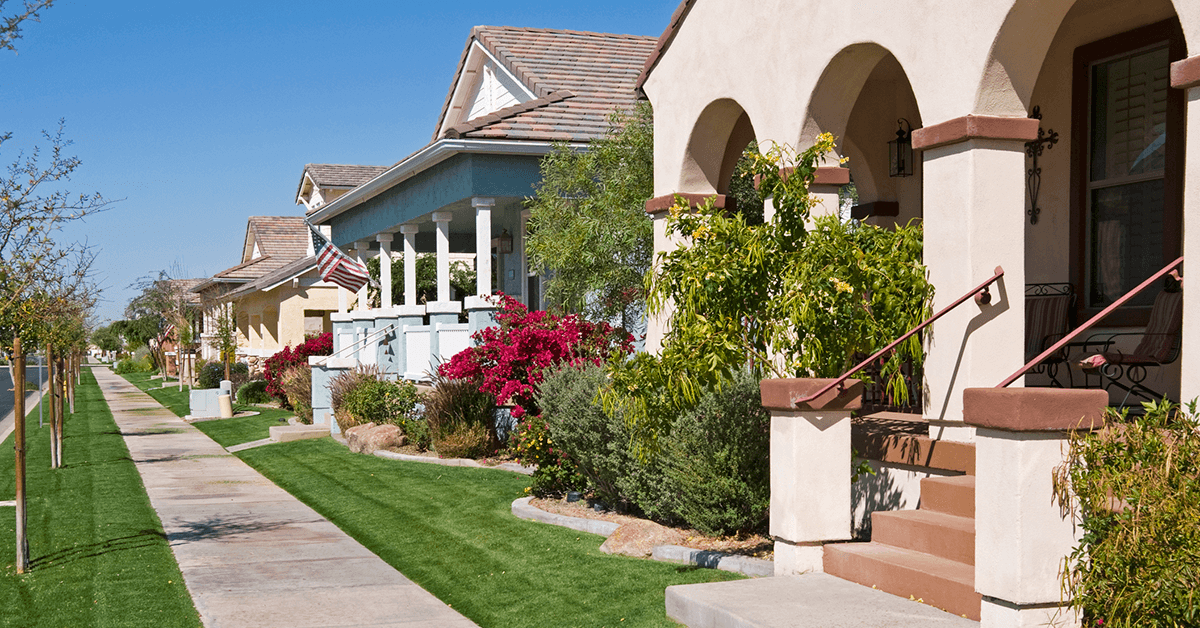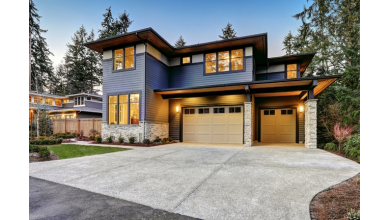The Future of Homeownership in Arizona

A number of factors that are contributing to the changing landscape of homeownership in Arizona. One factor is the rising cost of education. Student loan debt is now at an all-time high, and this is making buying a house in Arizona difficult for many young people to save for a down payment on a home.
Another factor is the changing views on homeownership among younger generations. Many millennials and Gen Zers are less interested in owning a home than previous generations. They are more environmentally conscious, value flexibility and mobility, and they are less likely to see homeownership as a necessary part of adulthood. These societal shifts are having a significant impact on the Arizona housing market. The homeownership rate in Arizona has been declining in recent years, and it is expected to continue to decline in the future.
The future of homeownership in Arizona will likely be characterized by a blend of traditional and innovative approaches. While the challenges of student debt and changing perspectives on homeownership are undeniable, there are promising developments on the horizon.
This article will explore the initiatives currently taking place and can be taken to solve the housing crisis in Arizona.
Affordable Housing Initiatives
Efforts to promote affordable housing are essential for expanding homeownership opportunities in Arizona. The Arizona legislature and local governments are taking a number of steps to address the affordable housing crisis. For example, in 2022, the Arizona legislature passed a bill that provides $250 million in funding for affordable housing projects. (National Low Income Housing Coalition, 2022) Additionally, many cities and towns in Arizona are offering tax breaks and other incentives to developers who build affordable housing.
Technology and Digital Solutions
Technology is playing an increasingly important role in the home-buying process. Online real estate platforms such as Zillow and Trulia make it easier for buyers to browse listings and connect with agents. Additionally, new technologies such as virtual tours and 3D printing are changing the way homes are built and sold.
For example, virtual tours allow buyers to explore a home without having to visit it in person. This can be especially helpful for buyers who are moving from out of state or who have limited time to visit homes. Additionally, 3D printing is being used to build affordable homes and to create custom home designs. These advancements can save time and reduce costs, making homeownership more achievable for younger generations.
Flexible Employment Arrangements
One significant change in the workforce landscape is the rise of flexible employment arrangements. The gig economy, remote work options, and freelancing opportunities have enabled many Arizonians to diversify their income streams and increase their earning potential. This newfound flexibility will allow individuals to allocate more resources toward paying down their student debt while pursuing their homeownership goals.
Community Living and Co-housing Models
The desire for urban living and community-centric lifestyles is growing in Arizona. Younger generations are drawn to vibrant city centers, where they can enjoy cultural amenities, job opportunities, and a sense of belonging. This shift toward urbanization is reshaping the demand for housing, with a greater emphasis on multifamily units and communal living spaces.
Co-living and co-housing models are becoming increasingly popular as a way to reduce the cost of housing and build community. Co-living spaces typically offer private bedrooms and shared common areas, such as kitchens, living rooms, and laundry facilities. Co-housing communities consist of individually owned homes that share common resources such as gardens, playgrounds, and community centers.
Co-living and co-housing models can be a good option for people who are looking for a more affordable and social housing experience. They can also be a good option for people who are new to an area or who are looking to downsize.
Creative Financing Options
Lenders and financial institutions are adapting to the changing landscape by offering creative financing solutions. Low down payment options, assistance programs, and alternative credit scoring methods are becoming more prevalent. These innovations can make it easier for individuals with student debt to qualify for mortgages and purchase homes in Arizona.
Financial Education and Counseling
Empowering individuals with the knowledge and tools to manage their finances is crucial for future homeownership success. Financial education and counseling programs can help individuals understand their student loan options, improve credit scores, and develop a path to homeownership.
In addition to that, financial education and counseling can help Arizonans make informed decisions about homeownership. AHFA and other organizations offer a variety of resources to help potential homebuyers understand the process, qualify for a mortgage, and manage their finances.
For example, AHFA offers a free homebuyer education course that covers topics such as budgeting, credit, and the home-buying process. Additionally, AHFA offers pre-purchase counseling to help buyers understand their mortgage options and to prepare for the financial challenges of homeownership.
Sustainable Living
Sustainability and environmental concerns are influencing housing choices in Arizona and beyond. Many younger buyers are seeking energy-efficient and eco-friendly homes, valuing sustainability over traditional aspects of homeownership. This trend has led to an increase in green building practices and eco-conscious developments in the state.
To cater to these new environment conscious buyers the old houses need to be renovated with energy saving technologies and appliances. Reusing, refurbishing and recycling features must be part of integrated in house facilities.
Conclusion
The future of homeownership in Arizona is being shaped by a complex interplay of factors, including student debt and changing perspectives on what it means to own a home. While challenges remain, there are opportunities for progress. Flexible employment, government initiatives, creative financing options, and shifting preferences are all contributing to a dynamic and evolving housing market.
Read Also : The Future of Homeownership in Arizona




